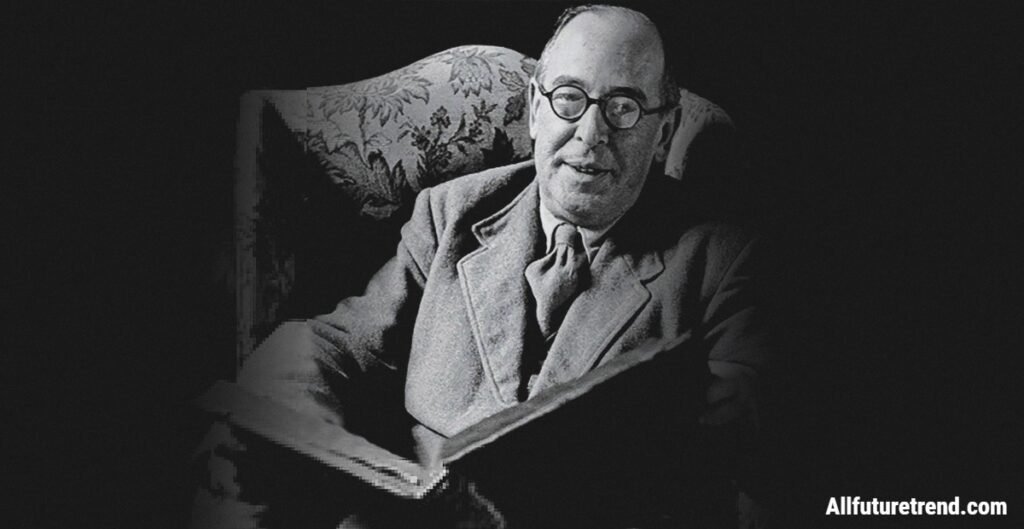C.S. Lewis remains a towering figure in literature, theology, and philosophy. Known for his timeless works, he has captivated readers with stories of magic and faith alike. From the enchanting land of Narnia to profound theological reflections, his words continue to resonate today. But while we celebrate his literary genius, many are curious about the man behind the pen—his life experiences and ultimately, his cause of death.
Join us as we delve into the fascinating journey of C.S. Lewis, exploring not just who he was but how he lived and passed on from this world.
Who Was C.S. Lewis?
C.S. Lewis, born on November 29, 1898, in Belfast, Northern Ireland, was an influential writer and scholar. His full name was Clive Staples Lewis, but he became widely known as C.S.
Raised in a loving yet strict family environment, Lewis exhibited a remarkable aptitude for storytelling from an early age. He developed a passion for literature that shaped his future endeavors.
As a student at Oxford University and later Cambridge University, Lewis honed his skills as an academic and author. He became known not only for his fiction but also for his theological writings that addressed profound questions about faith and existence.
His ability to weave complex themes into accessible narratives made him beloved by readers across generations. Through both whimsical tales and serious discourse, C.S. Lewis left an indelible mark on the literary world.
C.s. lewis Cause of Death
C.S. Lewis passed away on November 22, 1963. His death came as a shock to many who admired his work and intellect.
The cause of death was kidney failure, which had been exacerbated by other health issues he faced in his later years. Despite this struggle, Lewis continued to write and share his thoughts until the very end.
His passing coincided with the day President John F. Kennedy was assassinated, overshadowing news of Lewis’s death for some time.
Many fans remember him not only for his literary contributions but also for his profound insights into faith and human nature. His legacy continues to inspire readers worldwide long after that fateful day in November.
Early Life and Education
He grew up in a loving yet intellectually stimulating environment. His father was a solicitor, and his mother was a homemaker with literary interests.
From an early age, Lewis displayed remarkable talent for storytelling and language. After the death of his mother when he was just nine years old, he faced personal challenges that shaped his worldview.
Lewis attended Malvern College before enlisting in the British Army during World War I. Following the war, he pursued higher education at Magdalen College, Oxford University. Here, he immersed himself in literature and philosophy.
His time at Oxford laid an important foundation for his future works. It fostered not only critical thinking but also ignited his passion for Christianity—a theme that would deeply influence many of his writings later on.
Career and Achievements
C.S. Lewis had a remarkable career that spanned various fields, primarily as an author and scholar. His most famous works include “The Chronicles of Narnia” series, which has captivated readers for generations with its imaginative storytelling and rich allegory.
Lewis was also a distinguished academic at Oxford University before he moved to Cambridge. He taught English literature and contributed significantly to the field through essays and lectures. His intellectual prowess earned him respect among scholars and students alike.
In addition to fiction, C.S. Lewis wrote extensively on Christian apologetics. Books like “Mere Christianity” addressed profound questions about faith in accessible language, reaching both believers and skeptics.
His achievements did not go unnoticed; he received several accolades throughout his life. Today, his influence continues through adaptations of his work in film, theater, and even education around morality and philosophy.
Personal Life and Relationships
C.S. Lewis had a complex personal life marked by profound relationships. He was deeply influenced by childhood friendships, especially with his brother Warren. Their bond played a crucial role in shaping his early worldview.
As an adult, Lewis developed close ties with fellow writers and scholars at Oxford University. His relationship with J.R.R. Tolkien is particularly noteworthy; their discussions about faith and fiction sparked creativity that shaped modern literature.
In 1956, after years of bachelorhood, Lewis married Joy Davidman, an American poet. Their union transformed both their lives profoundly. Joy’s battle with cancer brought heartache yet also deepened their connection.
Lewis experienced the joys and sorrows of love intimately during this period, offering rich insights into human emotions in his later writings. These experiences informed much of his work on love and loss reflected throughout his literary legacy.
Legacy
C.S. Lewis left a profound impact on literature and theology that continues to resonate today. His ability to weave deep philosophical questions into captivating narratives made his works timeless classics.
The Chronicles of Narnia remains one of the most beloved series in children’s literature, enchanting generations with its allegorical themes and imaginative storytelling. Moreover, his theological writings, such as “Mere Christianity,” have shaped Christian thought for countless readers.
Lewis’s legacy extends beyond just books; he inspired discussions about faith, reason, and morality. He encouraged individuals to think critically about their beliefs while simultaneously inviting them into a world of wonder and imagination.
His influence can be seen in modern adaptations of his work and in the hearts of those who find solace in his words. C.S. Lewis’s life story is not only defined by what he wrote but also by how deeply he touched the lives of others through both his intellect and creativity.
You Might Also Like:
Sherrick Cause of Death. What Happend To Sherrick?
Who Was Patrice Martinez? And Her Cause of Death
Who Was Mieszko Talarczyk? And His Cause of Death
Who Was Ferdinand Berthier? And His Cause of Death


